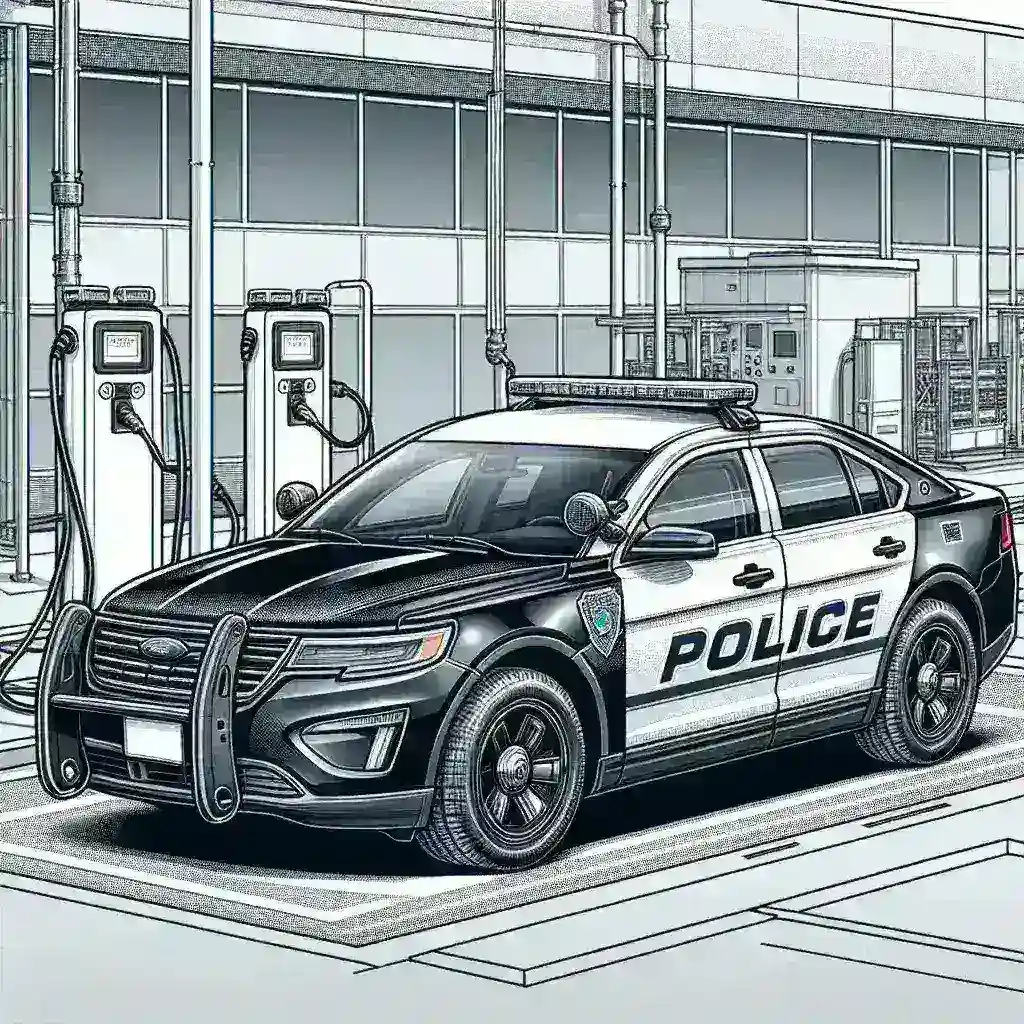Ford Unveils Factory-Built EV Police Interceptor Vehicles
In a groundbreaking move that promises to revolutionize law enforcement’s approach to sustainable transport, Ford has officially unveiled its factory-built electric vehicle (EV) police interceptor vehicles. This initiative marks a significant stride toward environmental responsibility in the policing sector, showcasing Ford’s commitment to innovation and sustainability.
The Evolution of Police Vehicles
Police vehicles have undergone constant evolution, adapting to technological advancements and changing societal needs. Traditionally, these vehicles were fueled by gasoline and built for high-speed pursuits and heavy-duty performance. However, with the increasing emphasis on sustainability and reducing carbon footprints, the introduction of electric vehicles into the police fleet is a transformative shift.
Historical Context
The transition from traditional vehicles to electric models isn’t merely a trend; it’s a necessity driven by the urgent need to combat climate change. The police force has often been seen as a reflection of community values, and as society increasingly prioritizes sustainability, law enforcement agencies are also expected to align with these values.
Features of the New EV Police Interceptor
Ford’s new EV interceptor vehicles are designed with a host of features that cater specifically to the needs of law enforcement:
- Performance: Equipped with powerful electric motors, these vehicles offer quick acceleration while maintaining high-speed capabilities, essential for police pursuits.
- Safety: Advanced safety features, including collision detection and automatic braking systems, enhance officer safety during high-pressure situations.
- Customizability: The vehicles can be tailored with various options for sirens, lights, and other police equipment, ensuring they meet the specific needs of individual departments.
- Eco-Friendly Design: With zero tailpipe emissions, these vehicles contribute significantly to reducing air pollution and promoting cleaner urban environments.
The Future of Policing
The introduction of electric police vehicles is not just about the present; it’s also about preparing for a cleaner and more efficient future. As cities around the world work towards sustainable development goals, the incorporation of EVs into the police fleet aligns perfectly with urban planning initiatives designed to reduce carbon emissions.
Future Predictions
Industry experts predict that the use of electric vehicles in law enforcement will continue to grow, with many police departments looking to transition their fleets over the next decade. As battery technology improves and charging infrastructure expands, the feasibility of EVs for police work will only increase.
Pros and Cons of EV Police Interceptors
While the benefits of electric police vehicles are significant, there are challenges to consider. Here’s a balanced look:
- Pros:
- Reduced operational costs due to lower fuel and maintenance expenses.
- Decreased environmental impact, contributing to cleaner air in urban settings.
- Enhanced public relations as communities support eco-friendly initiatives.
- Cons:
- Initial purchasing costs may be higher compared to traditional vehicles.
- Limited range may pose challenges in rural areas with fewer charging stations.
- Training for officers to adapt to new technologies and features.
Real-Life Examples
Several police departments across the United States have already started to pilot electric vehicles, yielding promising results. For instance, the Los Angeles Police Department has initiated a trial with Tesla Model 3 vehicles, reporting significant savings on fuel and maintenance. Similarly, the San Diego Police Department is exploring the use of electric models as part of their commitment to sustainability.
Expert Opinions
Experts in the automotive and law enforcement fields agree that the transition to electric vehicles is not just a trend but a necessary evolution. According to a recent statement by a leading automotive analyst, “The integration of EVs into police fleets represents a pivotal moment in both the automotive and law enforcement industries. It reflects a broader societal shift towards sustainability and innovation.”
Cultural Relevance
The unveiling of Ford’s EV police interceptor vehicles is culturally relevant as it highlights the intersection of technology, law enforcement, and environmental responsibility. In a world increasingly affected by climate change, communities are more likely to support initiatives that prioritize sustainability, making this move not only smart but necessary for future community relations.
Conclusion
The unveiling of Ford’s factory-built EV police interceptor vehicles signifies a monumental shift in the law enforcement landscape. As police departments begin to adopt these vehicles, they lead by example in the global movement towards sustainable practices. This innovation not only enhances police operations but also aligns with community values, paving the way for a cleaner, more efficient future in policing.


Leave a Reply